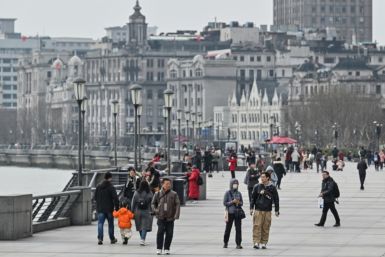More than half of Aussie teens suffer from social media anxiety – FOMO
The Stress and Wellbeing in Australia Survey 2015, conducted by the Australian Psychological Society (APS), has recorded some worrying statistics related to teens’ health. The survey has confirmed that the wellbeing of Australian teenagers is being affected by heavy social media use.
The Stress and Wellbeing in Australia Survey 2015 was released on Nov 8 to mark the beginning of Psychology Week from Nov 8 to 14. The annual survey conducted by the APS shows major trends in overall wellbeing and mental health of Australians. This year’s report has presented some alarming findings – one in two Aussie teenagers suffers from the Fear of Missing Out (FOMO).
According to a 2013 study led by Andrew Przybylski from the department of psychology at the University of Essex, FOMO is described as “a pervasive apprehension that others might be having rewarding experiences from which one is absent” and “a desire to stay continually connected with what others are doing.”
Andrew Fuller, clinical psychologist and spokesperson of the survey, said in an APS press release, “More than half of all Australian teenagers – 56 percent – are heavy social media users.”
Aside from some positives such as better goal-setting and seeking help over social media, those teens who were heavy users reported higher stress caused by FOMO; fearing their friends were having more rewarding experiences than them (54 percent), being worried when they find out their friends are having fun without them (60 percent), and being bothered when they miss out on a planned get together (63 percent).
The results become particularly concerning when social media is seen to control all of the day-to-day interactions. More than half (53 percent) of Aussie teens are reportedly using social media 15 minutes before going to bed every night. Another shocking statistic is that 57 percent of teens reported difficulty in sleeping or relaxing after spending time on social media.
The survey found a direct correlation between lesser social media use and FOMO – the fewer hours they spent on social media, the lesser stress teens reported about someone posting their ugly pictures, or not getting enough “likes” on their social media posts.
The findings pointed to the stronger impact of social media anxiety on teenagers and the major role it plays in their search for self and identity formation. “Young people, in particular, may need some assistance to moderate their social media use so it doesn’t have a negative impact on them,” said Fuller.
Contact the writer at feedback@ibtimes.com.au, or let us know what you think below






